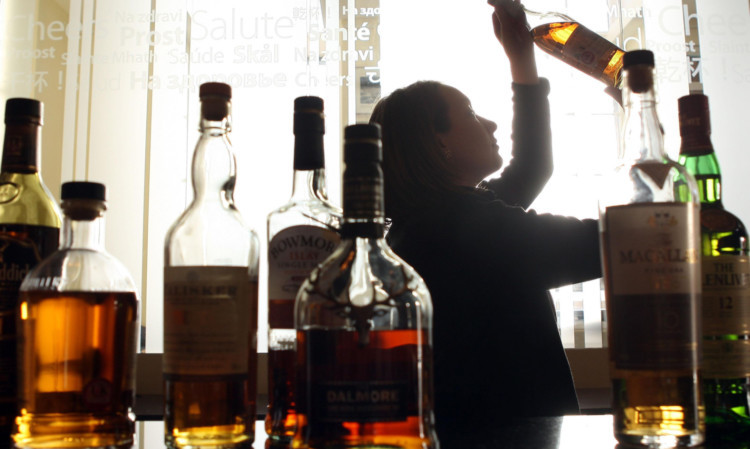Austerity measures in south east Asia helped slow Scotch whisky exports last year leaving flat figures in one of the UK’s most valuable industries.
Volumes of the spirit shipped climbed by 2.5% to the equivalent of 1.23 billion 70cl bottles during the 12 months to the end of December, but the value of exports was watered down by 0.33% to £4.26bn in the face of global price pressures.
The statistics based on HMRC records and published by the Scotch Whisky Association were hailed as evidence of a “strong” effort in spite of variable underlying conditions in the 200 destinations served by the sector.
But they also reveal a further stagnation in the global market, with a slowdown in the second half of 2013 following an encouraging start during the first six months. Volumes had previously fallen by around 5% during 2012, with increasing premiumisation driving values up by 1%.
The SWA said “star performers” included the US, Mexico and India, while the growing popularity of single malt had also contributed to a result which is worth the equivalent of £135 a second to the UK’s balance of trade.
The organisation hopes further efforts to boost exports through initiatives like EU-US Transatlantic Trade and Investment Partnership will bear fruit, though Scotch Whisky already represents around 85% of international trade in Scottish food and drink and almost a quarter of the UK total.
Negotiations for EU-India Free Trade Agreement are expected to re-start following the ongoing Indian election, with hopes it can help reduce an “onerous” 150% import tariff.
“Scotch Whisky exports remain strong and the industry’s impressive performance makes a major contribution to the UK’s trade performance,” said association chief executive David Frost.
“The unprecedented investment programmes in Scotch Whisky by producers show that in the long term they are confident that demand will continue to grow.
“However, in the short run, there are some economic headwinds. Formal and informal barriers to trade remain. We should remember that the industry’s success does not come automatically but is based on hard work, investment and careful stewardship.”
He said the industry relied on strong political support from government as it sought to influence decision-makers abroad – and stressed that both Holyrood and Westminster had so-far played an “important role”.
“Whatever the outcome of the Scottish referendum, as an industry exporting to around 200 markets we will continue to need the backing of an effective diplomatic network with the necessary global reach, commercial expertise, and capacity to influence,” Mr Frost added.
Access to diplomatic support has been one area of contention during the independence debate, with Better Together stressing the UK’s worldwide network of embassies and consuls as a strength of the union and the Yes campaign saying an independent Scotland would have between 70 and 90 bases incorporating the nation’s share of UK assets and exisiting offices.
Major whisky-maker Diageo has already said a vote in favour of independence would make no difference to its investment decisions, though it has revealed contingency plans to protect its interests. And Pernod Ricard has warned over the “fragility” of the industry at a time when the world is becoming more global.
The US market grew 8% last year, climbing to a record level of £819m and underlining its place as the dominant importer of Scotch by value. France remains the biggest destination by volume, and climbed 16% as tax hikes which afflicted imports during the previous year were relaxed.
Exports to India, Brazil, Mexico and eastern Europe also grew, with a 38% rise in Poland making it a £60m market having grown tenfold since the country joined the EU a decade ago.
But direct exports to Taiwan, South Korea and Japan all fell in value by between 13% and 15%. China fell out of the top 20 markets, with direct exports declining nearly 30% to £51m amid a crackdown on conspicuous consumption.
